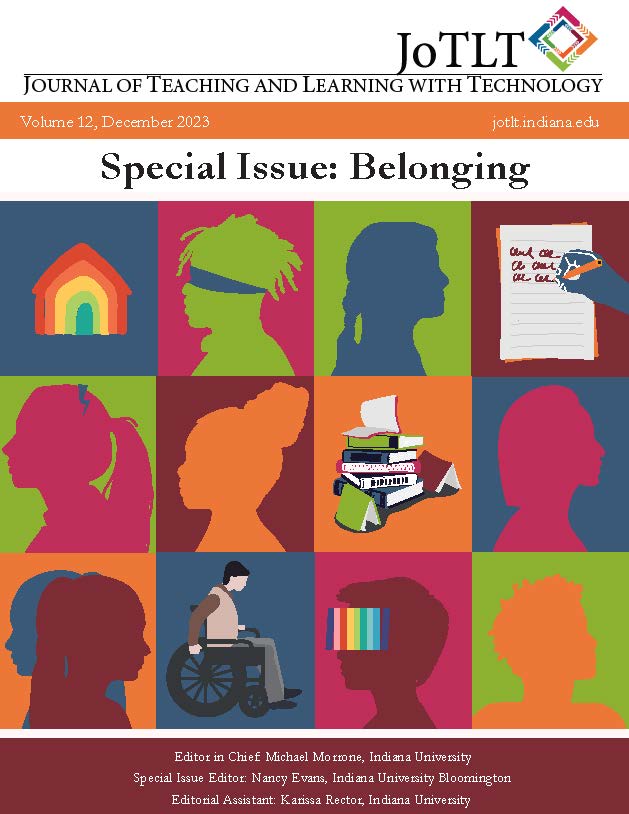Creating a Sense of Global Community and Belonging Through Collaborative Online International Learning
Main Article Content
Abstract
A sense of belonging has been shown to enhance retention and degree completion among undergraduate students. Helping students feel a sense of belonging in a community should be a focus of today’s educators. In professions, such as public health, that seek to address global issues that affect people around the world, feeling connected to a global community is becoming increasingly important. A technology-focused educational intervention was developed to enhance a sense of global belonging/community among two groups of undergraduate public health students from the United States and the United Kingdom using a 7-week collaborative online international learning (COIL) unit. Guided by the intercultural knowledge and competence rubric, one of several rubrics developed by the American Association of Colleges and Universities to assess the achievement of essential skills on college campuses in the United States and abroad, instructors sought to determine if public health students experienced a change in their intercultural competence. A significant change in students’ knowledge of cultural worldview frameworks was noted (pretest M = 2.50, SD = 0.68 vs. posttest M = 2.93, SD = 0.52, p < .001, d = 0.560). After the unit was completed, 83% of participants reported an adequate or sophisticated level of understanding people from other cultures, an increase of 39% from prior to the COIL unit. COIL can increase students’ knowledge of cultural worldview frameworks, which enhances their intercultural competence and sense of belonging in a global community. Effective learning approaches with technology should be used to enhance student belonging, retention, and degree completion in higher education. Future research should further assess COIL and technology-based learning interventions for positive impacts on belonging.
Downloads
Article Details
- Authors retain copyright and grant the Journal of Teaching and Learning with Technology (JoTLT) right of first publication with the work simultaneously licensed under a Creative Commons Attribution License, (CC-BY) 4.0 International, allowing others to share the work with proper acknowledgement and citation of the work's authorship and initial publication in JoTLT.
- Authors are able to enter separate, additional contractual agreements for the non-exclusive distribution of the journal's published version of the work (e.g., post it to an institutional repository or publish it in a book), with an acknowledgement of its initial publication in JoTLT.
- In pursuit of manuscripts of the highest quality, multiple opportunities for mentoring, and greater reach and citation of JoTLT publications, JoTLT encourages authors to share their drafts to seek feedback from relevant communities unless the manuscript is already under review or in the publication queue after being accepted. In other words, to be eligible for publication in JoTLT, manuscripts should not be shared publicly (e.g., online), while under review (after being initially submitted, or after being revised and resubmitted for reconsideration), or upon notice of acceptance and before publication. Once published, authors are strongly encouraged to share the published version widely, with an acknowledgement of its initial publication in JoTLT.
